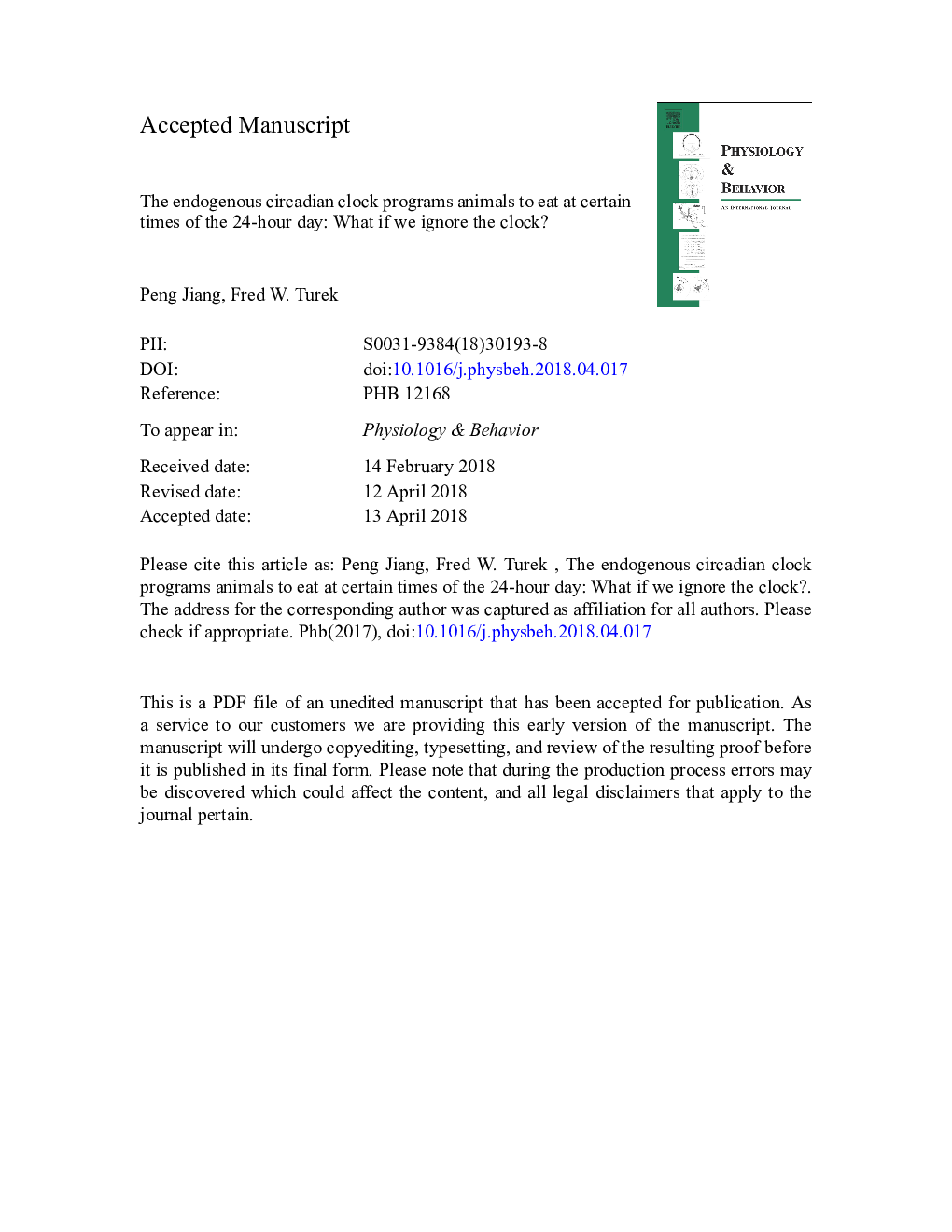| Article ID | Journal | Published Year | Pages | File Type |
|---|---|---|---|---|
| 8650371 | Physiology & Behavior | 2018 | 26 Pages |
Abstract
The discovery of the molecular mechanisms underlying the circadian clock, which functions in virtually every cell throughout the body to coordinate biological processes to anticipate and better adapt to daily rhythmic changes in the environment, is one of the major biomedical breakthroughs in the 20th century. Twenty years after this breakthrough, the biomedical community is now at a new frontier to incorporate the circadian clock mechanisms into many areas of biomedical research, as studies continue to reveal an important role of the circadian clock in a wide range of biological functions and diseases. A forefront of this exciting area is the research of interactions between the clock and energy metabolism. In this review, we summarize animal and human studies linking disruptions of the circadian clock, either environmental or genetic, to metabolic dysfunctions associated with obesity, diabetes, and other metabolic disorders. We also discuss how these advances in circadian biology may pave the way to revolutionize clinical practice in the era of precision medicine.
Related Topics
Life Sciences
Biochemistry, Genetics and Molecular Biology
Physiology
Authors
Peng Jiang, Fred W. Turek,
